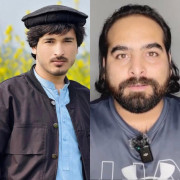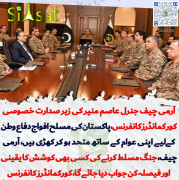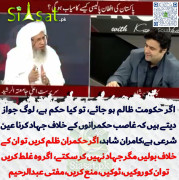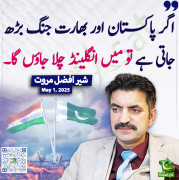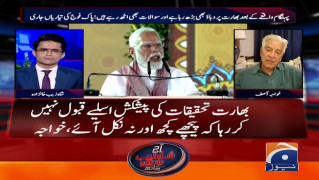M Ali Khan
Minister (2k+ posts)
You are your words
Posted by Hafsa Khawaja on Monday, August 26, 2013
Our language reveals the national psyche, says Hafsa Khawaja
 Words. They have the power to inspire and incite; uplift and daunt. From Martin Luther King Jrs I have a dream to the fall of the Berlin Wall, they have wielded enormous influence and impact. Most importantly, they mould mindsets. Often certain words, terms and sayings become so common in cultures, their nature starts to elude people.
Words. They have the power to inspire and incite; uplift and daunt. From Martin Luther King Jrs I have a dream to the fall of the Berlin Wall, they have wielded enormous influence and impact. Most importantly, they mould mindsets. Often certain words, terms and sayings become so common in cultures, their nature starts to elude people.
Such is the case in Pakistan. Questionable sayings, practices and customs that should rouse critical commentary have become so embedded in society, theyve become a part of us. Hum nay choorian nahi pehni hui! (We are not wearing bangles) a phrase that consigns femininity to a mean, derogatory level holds great currency among the tub-thumping, populist rhetoric in the political arena of Pakistan.
Another popular example given to children to explain the consequences of deviance from studies is Parho gay nahi tau chaprasi ban jao gay (if you dont study you will become a peon) or Parho gay nahi tau cycle stand par lag jao gay (if you dont study you will have to work at a cycle stand) and so on.
Those who sweep and clean our homes, roads, streets and country and those who toil at workshops are reduced to lowly figures of little worth, therefore, little respect. Consciously or unconsciously, this idea is implanted in childrens impressionable minds.
Socialisation is defined as a continuing process, beginning in infancy, whereby an individual learns the culture of a society; the distinction between right and wrong; the social dictates of her gender; the kind of behaviour that is expected of her in short, her social identity and personhood is inevitably intended to conform to social and cultural demands.
This process of learning is often based on interactions between the individual and other members of the society, and language is the hinge of this interaction. It is through language that the beliefs and ideas of a society, even if they be social prejudices, are conveyed and instilled into a child as part of his personality and identity formation.
Linguistic anthropology is a whole interdisciplinary study dedicated to understanding the effect language yields on social life, beliefs and identity of an individual. Famous linguistic anthropologists Schieffelin and Ochs stated:
Language socialisation is a concept we take to mean both socialisation through language and socialization to use language. Children and other novices in society acquire tacit knowledge of principles of social order and systems of belief through exposure to and participation in language-mediated interaction. Language use is then a major if not the major tool for conveying sociocultural knowledge and a powerful medium of socialisation.
Transgenders in Pakistan are also treated along the same lines, terming someone khussra or khawaja sira has been assigned the status of a pejorative, just like the aforementioned sweepers and cleaners. A recent example of the usage was heard with Khawaja Saad Rafiques name (FYI, to whom I bear no relation) related to the alleged rigging at NA-125 in the May 11th elections.
Apparently calling him khawaja sira was meant to prove some point against him. The fact is that the transgendered are what they are as products of nature, theirs is neither a life one would wish to lead nor a fate one would desire, especially in Pakistan, where they are ostracized and degraded for what is beyond their ability to bear.
This translates into stereotypes which may run along the lines of branding all Christians in Pakistan as chooray, chaprasi or jamadars
Language prejudices may also acquire a religious colour skewed against people of a certain faith. This translates into stereotypes which may run along the lines of branding all Christians in Pakistan as chooray, chaprasi or jamadars or possessing capabilities only fit to be these. It is instances and patterns like these that breed the rotten elements in our society, as they have been passed down through language, condescension of some classes against others as well as occasional and situational employment of respect and regard towards others. In short, social decadence.
For Pakistan to progress and prosper, we will have to realize that change must not always and necessarily spring from the top but must also from within
The result is often witnessed at public places like restaurants where poor waiters are subjected to much impolite, crude and rude behavior or when domestic helpers are made an object of jests and jokes. A nation can be judged vastly from its character and conduct which are shaped by communication of the societys ideas, beliefs, values, norms and mindset that constitute its culture. And language, is the vehicle of culture.
All humans and individuals are equal and it is a demand of our times that Pakistan transcend the self-constructed barriers of class, ethnicity, race, sect, gender, regression and myopia. Sift your words in your mind before letting them ride your tongue, measure their meaning, gauge their effects and calculate their consequences for yourself and others.
For Pakistan to progress and prosper, we will have to realize that change must not always and necessarily spring from the top but must also begin from within. Introspection and critical reflection must govern us first and foremost. We must be the regulators of ourselves for it is us that form a society from which the heart of a country, a nation is born.
Hafsa Khawaja is a student with a keen eye on national issues and global affairs. She blogs at http://hafsakhawaja.wordpress.com
- See more at: http://blogs.thefridaytimes.com/youareyourwords/#sthash.6S7NjBIw.dpuf
Posted by Hafsa Khawaja on Monday, August 26, 2013
Our language reveals the national psyche, says Hafsa Khawaja

Hum nay choorian nahi pehni hui! (We are not wearing bangles) a phrase that consigns femininity to a mean, derogatory level holds great currency
Such is the case in Pakistan. Questionable sayings, practices and customs that should rouse critical commentary have become so embedded in society, theyve become a part of us. Hum nay choorian nahi pehni hui! (We are not wearing bangles) a phrase that consigns femininity to a mean, derogatory level holds great currency among the tub-thumping, populist rhetoric in the political arena of Pakistan.
Another popular example given to children to explain the consequences of deviance from studies is Parho gay nahi tau chaprasi ban jao gay (if you dont study you will become a peon) or Parho gay nahi tau cycle stand par lag jao gay (if you dont study you will have to work at a cycle stand) and so on.
Those who sweep and clean our homes, roads, streets and country and those who toil at workshops are reduced to lowly figures of little worth, therefore, little respect. Consciously or unconsciously, this idea is implanted in childrens impressionable minds.
Socialisation is defined as a continuing process, beginning in infancy, whereby an individual learns the culture of a society; the distinction between right and wrong; the social dictates of her gender; the kind of behaviour that is expected of her in short, her social identity and personhood is inevitably intended to conform to social and cultural demands.
This process of learning is often based on interactions between the individual and other members of the society, and language is the hinge of this interaction. It is through language that the beliefs and ideas of a society, even if they be social prejudices, are conveyed and instilled into a child as part of his personality and identity formation.
Linguistic anthropology is a whole interdisciplinary study dedicated to understanding the effect language yields on social life, beliefs and identity of an individual. Famous linguistic anthropologists Schieffelin and Ochs stated:
Language socialisation is a concept we take to mean both socialisation through language and socialization to use language. Children and other novices in society acquire tacit knowledge of principles of social order and systems of belief through exposure to and participation in language-mediated interaction. Language use is then a major if not the major tool for conveying sociocultural knowledge and a powerful medium of socialisation.
Terming someone khussra or khawaja sira has been assigned the status of a pejorative
Transgenders in Pakistan are also treated along the same lines, terming someone khussra or khawaja sira has been assigned the status of a pejorative, just like the aforementioned sweepers and cleaners. A recent example of the usage was heard with Khawaja Saad Rafiques name (FYI, to whom I bear no relation) related to the alleged rigging at NA-125 in the May 11th elections.
Apparently calling him khawaja sira was meant to prove some point against him. The fact is that the transgendered are what they are as products of nature, theirs is neither a life one would wish to lead nor a fate one would desire, especially in Pakistan, where they are ostracized and degraded for what is beyond their ability to bear.
This translates into stereotypes which may run along the lines of branding all Christians in Pakistan as chooray, chaprasi or jamadars
Language prejudices may also acquire a religious colour skewed against people of a certain faith. This translates into stereotypes which may run along the lines of branding all Christians in Pakistan as chooray, chaprasi or jamadars or possessing capabilities only fit to be these. It is instances and patterns like these that breed the rotten elements in our society, as they have been passed down through language, condescension of some classes against others as well as occasional and situational employment of respect and regard towards others. In short, social decadence.
For Pakistan to progress and prosper, we will have to realize that change must not always and necessarily spring from the top but must also from within
The result is often witnessed at public places like restaurants where poor waiters are subjected to much impolite, crude and rude behavior or when domestic helpers are made an object of jests and jokes. A nation can be judged vastly from its character and conduct which are shaped by communication of the societys ideas, beliefs, values, norms and mindset that constitute its culture. And language, is the vehicle of culture.
All humans and individuals are equal and it is a demand of our times that Pakistan transcend the self-constructed barriers of class, ethnicity, race, sect, gender, regression and myopia. Sift your words in your mind before letting them ride your tongue, measure their meaning, gauge their effects and calculate their consequences for yourself and others.
For Pakistan to progress and prosper, we will have to realize that change must not always and necessarily spring from the top but must also begin from within. Introspection and critical reflection must govern us first and foremost. We must be the regulators of ourselves for it is us that form a society from which the heart of a country, a nation is born.
Hafsa Khawaja is a student with a keen eye on national issues and global affairs. She blogs at http://hafsakhawaja.wordpress.com
- See more at: http://blogs.thefridaytimes.com/youareyourwords/#sthash.6S7NjBIw.dpuf

